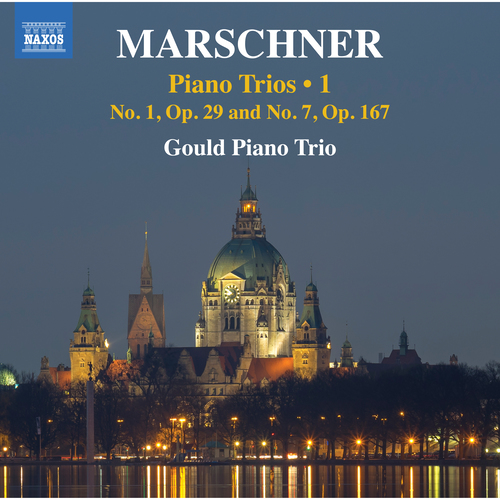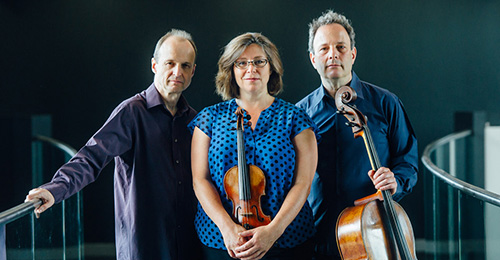‘What a delight to discover that Heinrich Marschner, the great 19th-century German opera composer, wrote no less than seven piano trios! These works are full of romantic passion while retaining a balanced classicism, despite their spaciousness. We decided to begin our cycle with his earliest and latest trios to demonstrate his progression from the quite terse to a fully harmonious style. We believe the quality of these works completely refutes their apparent neglect.’
– Benjamin Frith, Piano
‘Marschner’s seven piano trios appear to be his most substantial music after his operas and, from working on this first album in the complete series, I was delighted to discover what really good music it is. Reminiscent of Weber and Hummel, but still with its own voice, this is very enjoyable, special music, wonderfully played by the Gould Piano Trio, and made extra special by being recorded in Dolby Atmos.’
– Michael Ponder, Producer and engineer
Heinrich August MARSCHNER (1795–1861)
Piano Trios, Vol. 1
No. 1, Op. 29 and No. 7, Op. 167
Gould Piano TrioHeinrich Marschner’s role as Germany’s leading Romantic operatic composer in the generation between Weber and Wagner has tended to draw attention away from his accomplished chamber compositions. Marschner had a high regard for the piano trio genre, composing seven throughout his career, which won the admiration of his friends Robert and Clara Schumann. The Trio No. 1 in A minor is profusely lyrical and not without surprises and contrasts. Written three decades later, the Trio No. 7 in F major is a work of his maturity – assured, dramatic and energetic.
III. Scherzo: Presto
The Gould Piano Trio has remained at the forefront of the international chamber music scene for over a quarter of a century. Launched by winning First Prize at the Melbourne International Chamber Music Competition, it became the European Concert Hall Organisation's ‘Rising Stars’, making a highly successful and critically acclaimed debut at New York’s Weill Recital Hall. Its many appearances at London’s Wigmore Hall have included the complete piano trios of Dvořák, Mendelssohn, Schubert and Beethoven.
From left to right: Benjamin Frith, Lucy Gould and Richard Lester
Piano Trios
Phantasie Trio • Piano Trios Nos. 2 and 3
Cavatina • Berceuse • Bagatelle • The Holy Boy
Gould Piano Trio
– BBC Music Magazine ★★★★★
Piano Trio No. 2
Piano Quartet No. 1
Gould Piano Trio • Adams
– BBC Music Magazine
Piano Quartet No. 2
Piano Trio No. 1 • Legend • Jig • Hush Song
Gould Piano Trio • Adams
– Gramophone
Piano Trios, Vol. 1
Nos. 2, 3, 6 and 7
Gould Piano Trio
– Fanfare



















